如何使用 hjust 并仅移动 ggplot2 中的元素
您可以使用hjust和vjust参数分别在 ggplot2 中水平和垂直移动元素。
以下示例展示了如何在不同场景下使用hjust和vjust 。
示例 1:在 ggplot2 中移动标题位置
以下代码显示了如何在 ggplot2 中创建标题位于默认位置(左对齐)的散点图:
library (ggplot2)
#create scatter plot with title in default position
ggplot(data=mtcars, aes(x=mpg, y=wt)) +
geom_point() +
ggtitle(" Plot Title ")
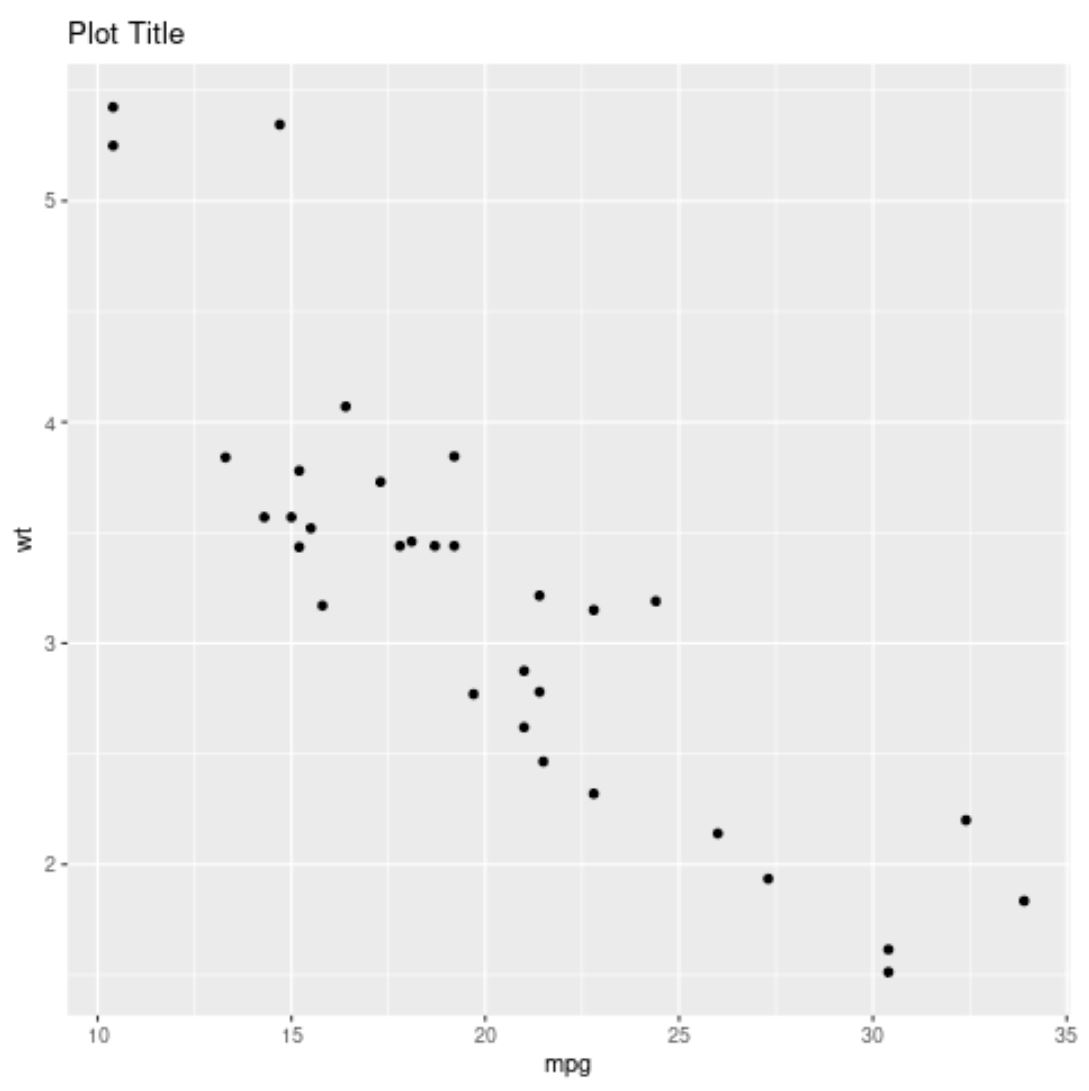
以下代码显示了如何使用hjust=0.5将标题居中:
library (ggplot2)
#create scatter plot with title center-aligned
ggplot(data=mtcars, aes(x=mpg, y=wt)) +
geom_point() +
ggtitle(" Plot Title ") +
theme(plot. title = element_text(hjust= .5 ))
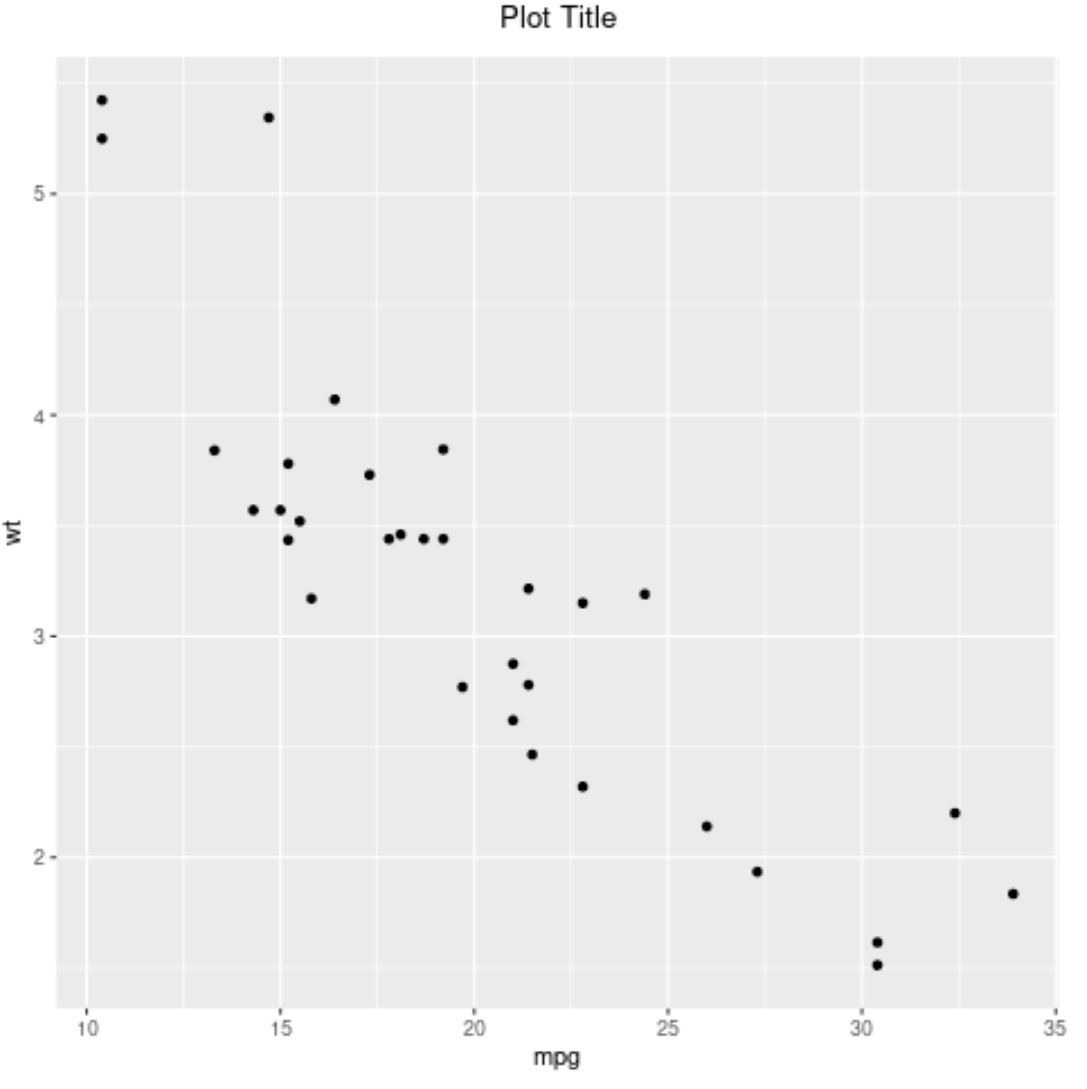
注意:您还可以使用hjust=1使标题右对齐。
示例 2:在 ggplot2 中移动轴标签位置
以下代码展示了如何在 ggplot2 中创建条形图,其中 x 轴标签旋转 90 度以使其更易于阅读:
library (ggplot2)
#create data frame
df = data. frame (team=c('The Amazing Amazon Anteaters',
'The Rowdy Racing Raccoons',
'The Crazy Camping Cobras'),
dots=c(14, 22, 11))
#create bar plot to visualize points scored by each team
ggplot(data=df, aes(x=team, y=points)) +
geom_bar(stat=' identity ') +
theme(axis. text . x = element_text(angle= 90 ))
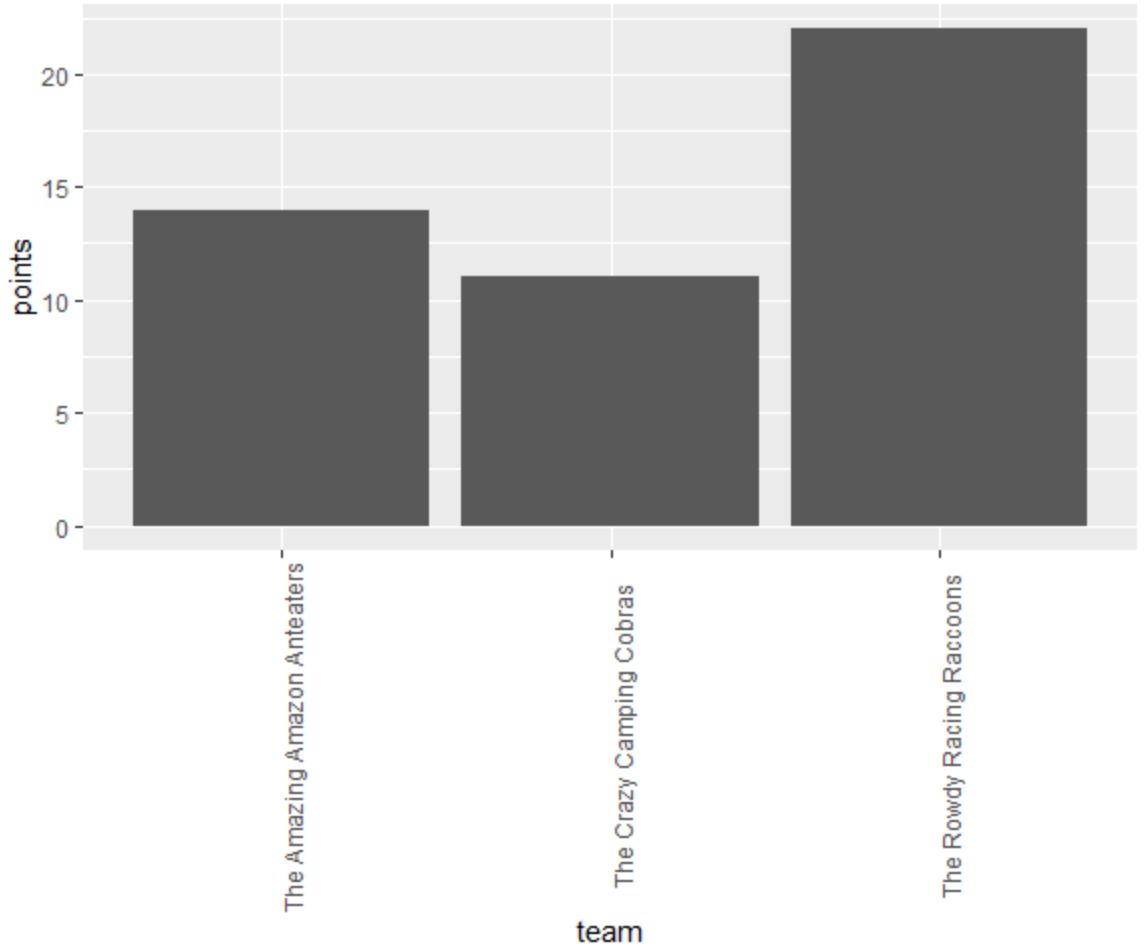
我们可以使用hjust和vjust参数来调整 x 轴标签,以便它们与 x 轴刻度线更紧密地对齐:
library (ggplot2)
#create data frame
df = data. frame (team=c('The Amazing Amazon Anteaters',
'The Rowdy Racing Raccoons',
'The Crazy Camping Cobras'),
dots=c(14, 22, 11))
#create bar plot to visualize points scored by each team
ggplot(data=df, aes(x=team, y=points)) +
geom_bar(stat=' identity ') +
theme(axis. text . x = element_text(angle= 90 , vjust= .5 , hjust= 1 )
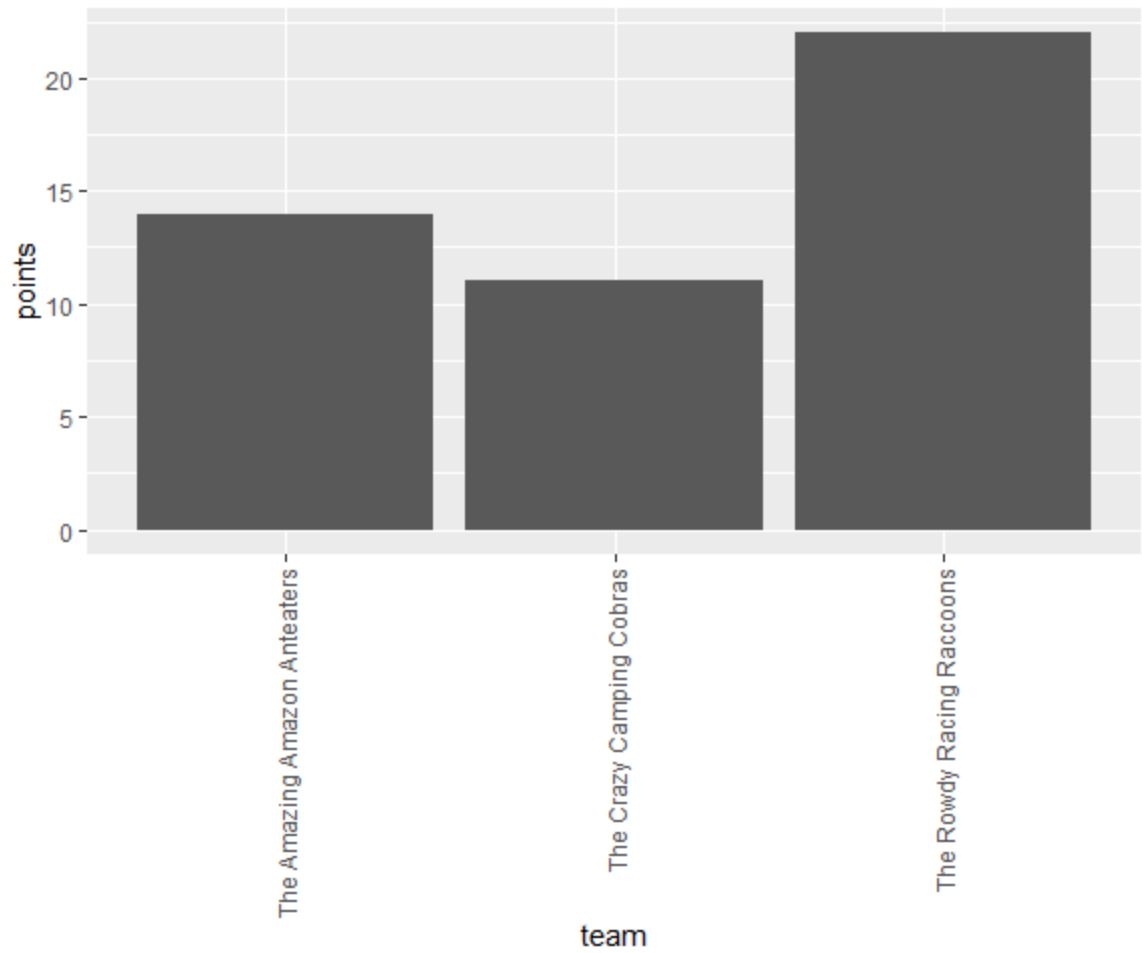
示例 3:在 ggplot2 中移动文本位置
以下代码展示了如何在 ggplot2 中创建散点图,并为图中的每个点添加注释文本:
library (ggplot2)
#create data frame
df <- data. frame (player=c('Brad', 'Ty', 'Spencer', 'Luke', 'Max'),
dots=c(17, 5, 12, 20, 22),
assists=c(4, 3, 7, 7, 5))
#create scatter plot with annotated labels
ggplot(df) +
geom_point(aes(x=points, y=assists)) +
geom_text(aes(x=points, y=assists, label=player))
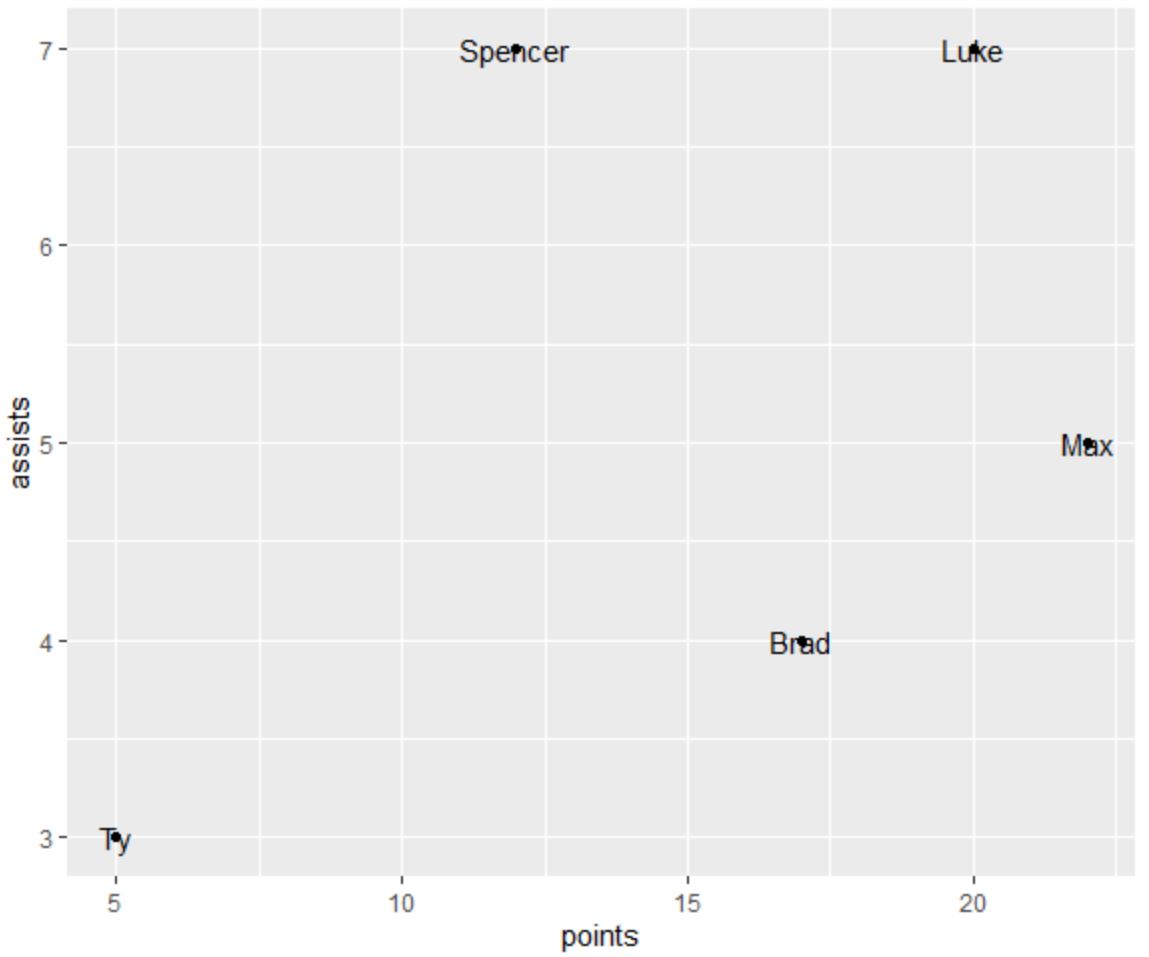
我们可以使用vjust参数垂直移动文本元素,以便它们更易于阅读:
library (ggplot2)
#create data frame
df <- data. frame (player=c('Brad', 'Ty', 'Spencer', 'Luke', 'Max'),
dots=c(17, 5, 12, 20, 22),
assists=c(4, 3, 7, 7, 5))
#create scatter plot with annotated labels
ggplot(df) +
geom_point(aes(x=points, y=assists)) +
geom_text(aes(x=points, y=assists, label=player), vjust= -.6 )
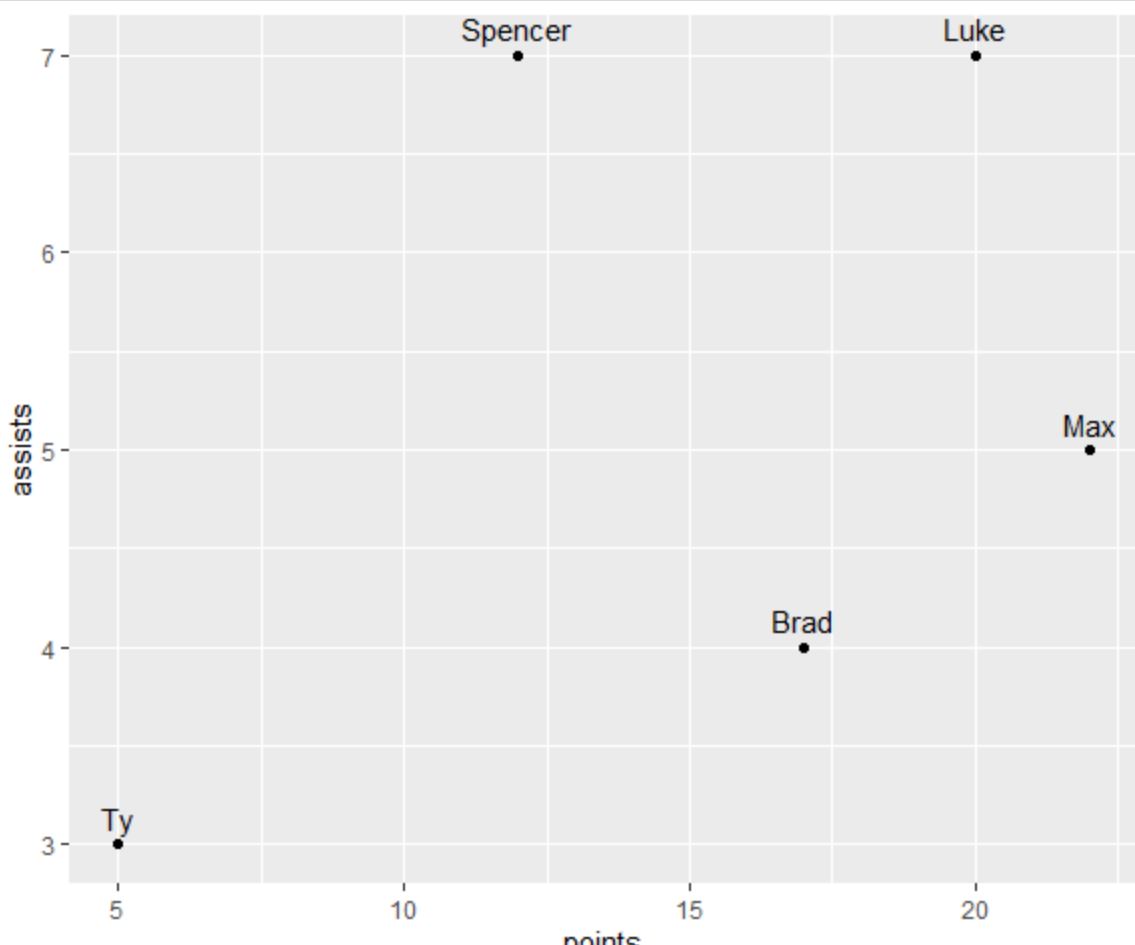
我们还可以使用vjust的正值来垂直向下移动文本元素:
library (ggplot2)
#create data frame
df <- data. frame (player=c('Brad', 'Ty', 'Spencer', 'Luke', 'Max'),
dots=c(17, 5, 12, 20, 22),
assists=c(4, 3, 7, 7, 5))
#create scatter plot with annotated labels
ggplot(df) +
geom_point(aes(x=points, y=assists)) +
geom_text(aes(x=points, y=assists, label=player), vjust= 1.2 )
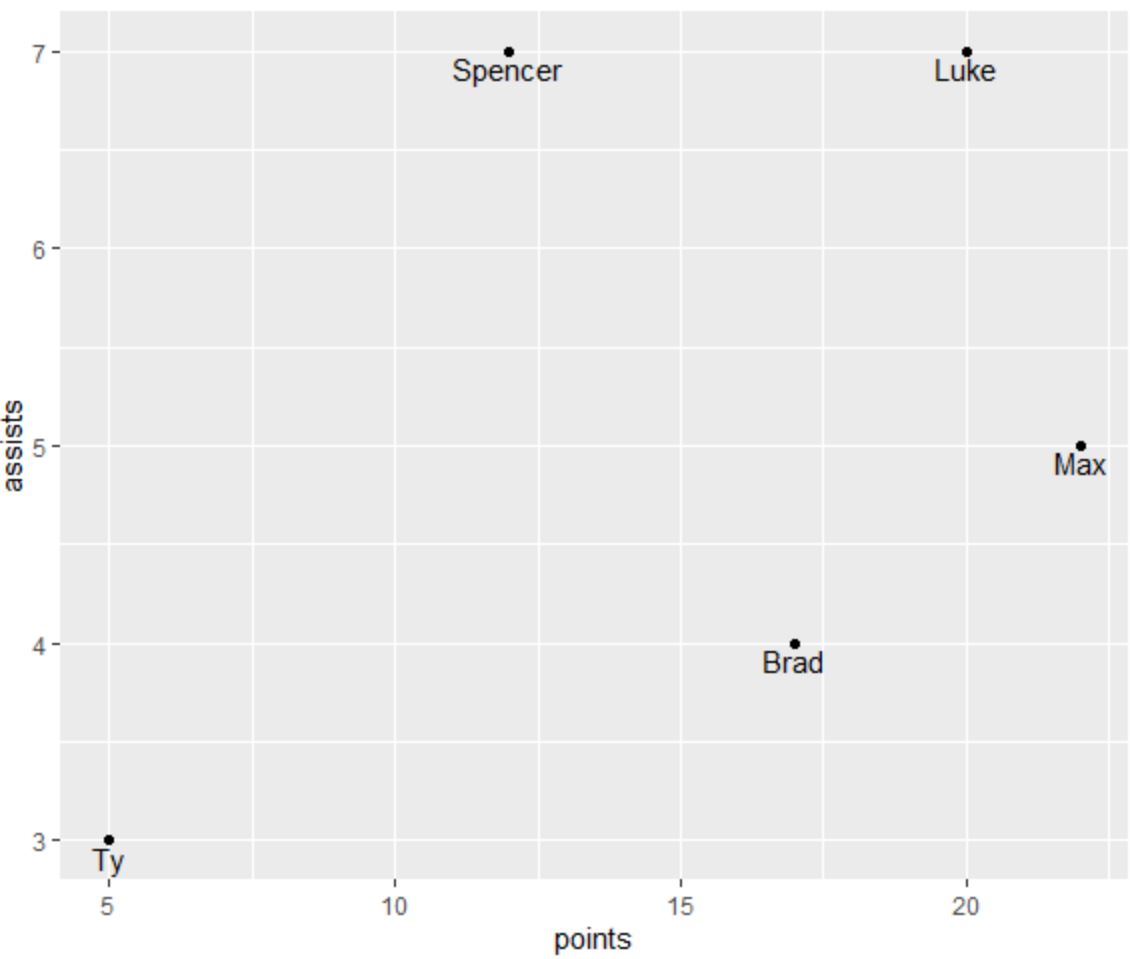
带注释的文本现在位于图上每个点的下方。
其他资源
以下教程解释了如何在 ggplot2 中执行其他常见任务: